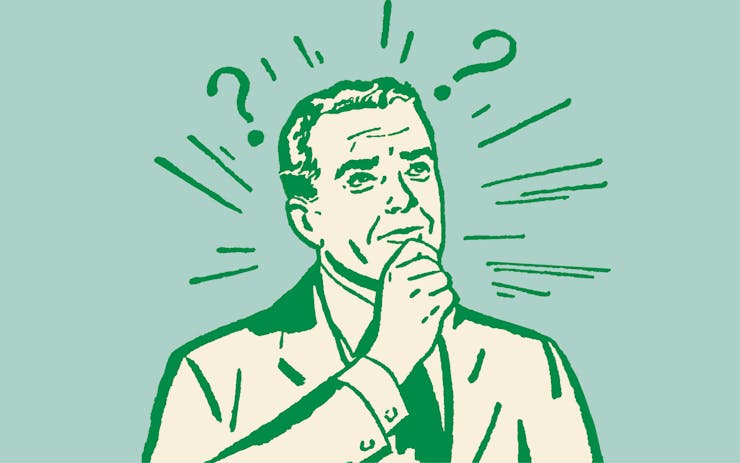The cannabis experience isn’t great for everyone. For many, THC-rich cannabis provides an enjoyable and euphoric high, but in others, it causes unpleasant dysphoria. In one report, 22% consumers felt anxious or panicked after using cannabis.
For most drugs, the first time experience goes a long way in predicting future use patterns, so your first time matters. But let’s assume that you once enjoyed cannabis but now find it unpleasant. What causes cannabis to be pleasant or unpleasant?Are You Wired to Enjoy Cannabis?There are three main factors that influence whether we find cannabis good or bad (note that for this discussion, we’re focusing on THC-rich cannabis only and not including the potential influence of terpenes or other cannabinoids).
- Age — We typically enjoy cannabis more as adolescents than as adults.
- Opioid receptors — The distribution of opioid receptors in our brains affects how we perceive cannabis.
- CB1 receptor location — The type of brain cells that have the most CB1 receptors can dictate our enjoyment, or aversion, to cannabis.
Factor #1: Your age
Despite being in a critical time of brain development, adolescents tend to be less sensitive to the aversive effects of cannabis compared to adults. In a study comparing the effects of THC on adolescent versus adult rats, THC caused higher levels of anxiety, spiked their stress hormones, and suppressed their movement to a greater extent than in adolescents. The adult rats found THC to be generally unpleasant and avoided the chamber in which they had experienced THC. Adolescent rats didn’t seem to mind.
The problem, however, is that cannabis has a more profound and long-lasting impact on the brain in adolescence than in adulthood. THC altered nearly 3 times more genes in the hippocampus, a critical brain region for mood and memory, in adolescent rats than in adult rats. Since these genes influence everything from how energy is created in brain cells, how harmful free radicals are neutralized, and how brain cells look and connect, it’s easy to see how adolescent THC exposure has long-lasting consequences on brain function.
Factor #2: Your opioid system
The interaction between the cannabinoid and opioid systems not only contributes to cannabis’ pain-relieving effects, but it also contributes to whether you find cannabis pleasant or aversive. Like the different cannabinoid receptors (i.e., CB1 and CB2), the opioid system also has different of receptors that cause different effects when activated by drugs or the body’s own chemicals. The relevant players in the opioid system are the μ-opioid receptors and the κ-opioid receptors.
Activation of μ-opioid receptors makes you feel good, and these receptors are largely responsible for the pain-relieving effects of morphine and prescription opioids. κ-opioid receptors, on the other hand, can have the opposite effect, and are responsible for some of the aversive properties of taking prescription opioid medications.
THC increases the level of the brain’s endogenous opioid chemicals in brain regions involved in mood and reward processing. This proposes that the difference between the presence of μ-opioid receptors versus κ-opioid receptors can influence whether THC has positive and rewarding effects. If you’re activating more μ-opioid receptors, you’ll enjoy THC more than if you were activating more κ-opioid receptors. Indeed, when genetically engineered mice cannot create κ-opioid receptors, or produce the brain’s own chemical that activates them, THC is no longer aversive, and instead, mice seem to really enjoy it!
Factor #3: Your CB1 receptors
In the most recent attempt to understand what underlies preference versus aversion to cannabis, scientists honed in on the CB1 receptors—the receptors that interact with THC to cause a high.
The scientists revealed that CB1 receptors on excitatory brain cells are responsible for THC’s aversive properties.
They focused their attention to a critical brain region for the rewarding properties of drugs, called the ventral tegmental area (for all you brain science nerds, the VTA is where many of the cells that make dopamine come from). Specifically, they asked whether CB1 receptors found on either excitatory brain cells (i.e., those that increase communication between brain cells) or inhibitory brain cells (i.e., those that reduce communication between brain cells) determined whether mice find THC good or bad.
The scientists revealed that CB1 receptors on excitatory brain cells are responsible for THC’s aversive properties. This fits with the idea that CB1 receptors on inhibitory brain cells are responsible for the rewarding properties of THC. From this, we can speculate that someone who initially doesn’t enjoy cannabis may have more CB1 receptors on their excitatory brain cells in the VTA than someone who enjoys cannabis.
In a complex human, it’s not one single mechanism that determines whether we like or dislike cannabis, but instead is likely the net effect of all these factors. And of course, nothing is set in stone. The way our DNA is expressed changes as we age and is influenced by life events or cannabis use patterns. These factors can alter our brain’s chemical systems, including where CB1 receptors are located. Therefore, the way we perceive cannabis can change, for better or worse.





